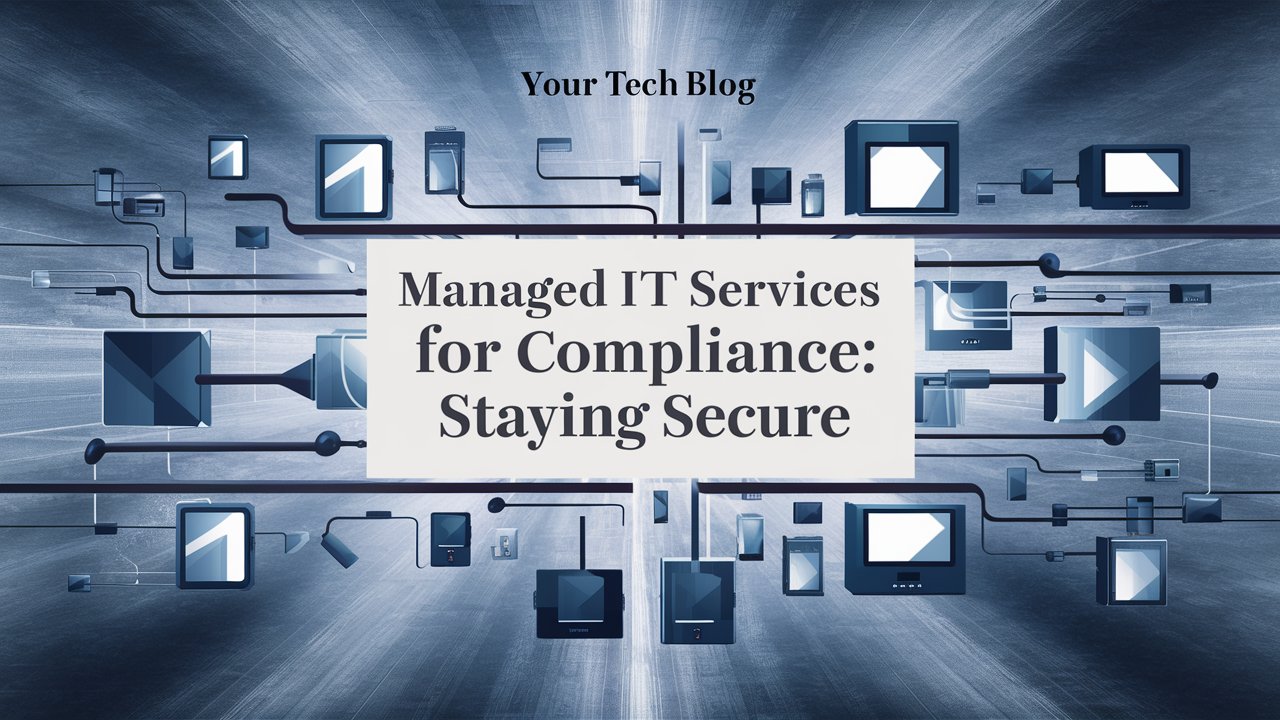
As businesses grow increasingly reliant on digital tools and data, staying compliant with regulatory standards has become essential for survival. From safeguarding sensitive information to avoiding hefty fines, meeting compliance requirements is critical. Managed IT services have become a go-to solution for companies needing expertise in managing complex regulations like GDPR, HIPAA, and PCI DSS. These services provide the structured guidance, monitoring, and security measures necessary for maintaining compliance.
Why Compliance Matters
Compliance goes beyond simply following rules—it’s about safeguarding customer trust, maintaining business integrity, and avoiding potential legal issues. Some of the most common regulations include:
- GDPR: Governs data privacy for companies dealing with EU citizens’ data.
- HIPAA: Applies to the healthcare sector, protecting patient information.
- PCI DSS: Sets security standards for companies handling credit card data.
Failing to meet these standards can lead to fines, reputational damage, and lost business. Managed IT services provide the technical expertise and proactive strategies to help businesses meet these compliance requirements.
Key Roles of Managed IT Services in Compliance Management
Managed IT services are an ideal resource for companies needing assistance with compliance. Here’s a breakdown of how these services help organizations achieve and maintain compliance.
-
Expert Compliance Knowledge and Guidance
Managed IT providers employ compliance specialists with deep knowledge of various regulatory requirements. These experts provide invaluable guidance, helping companies stay updated with changing regulations.
-
Thorough Risk Assessments
A critical step in compliance management is identifying potential vulnerabilities. Managed IT services perform comprehensive risk assessments to detect security gaps that could lead to non-compliance.
-
Implementing Strong Security Controls
Security is the foundation of compliance. Managed IT teams set up controls like encryption, firewalls, and intrusion detection systems, ensuring sensitive data is protected from unauthorized access.
-
Regular Compliance Audits and Continuous Monitoring
Managed IT services conduct regular audits and continuous monitoring to ensure ongoing compliance. This proactive approach allows businesses to address compliance issues before they become significant problems.
-
Data Management and Backup Solutions
Many regulations, such as HIPAA and GDPR, have strict guidelines on data storage and backup. Managed IT services provide secure data storage solutions that meet regulatory standards, ensuring that data can be recovered if a breach or loss occurs.
-
Employee Security Training
Human error is a major cause of security breaches. Managed IT services often provide employee training to raise awareness about compliance standards, helping prevent accidental breaches.
-
Incident Response and Recovery
In the event of a breach, managed IT services are ready with an incident response plan. They help contain and mitigate the issue quickly, ensuring that businesses can restore compliance without significant delays.
Best Practices for Compliance with Managed IT Services
When working with managed IT services, companies can maximize compliance benefits by following best practices that align with their overall security and risk management strategies.
-
Integrate Compliance into Risk Management
To ensure a holistic approach, businesses should incorporate compliance within their larger risk management strategies. This includes identifying strategic, operational, and reputational risks alongside regulatory risks.
-
Promote a Culture of Compliance
Employees across all departments should understand the importance of compliance. Regular training and clear policies foster a culture where compliance becomes everyone’s responsibility.
-
Adopt Proactive Compliance Monitoring
Implementing continuous monitoring allows organizations to identify potential compliance issues early. Automated alerts and regular internal audits can flag these issues before they escalate.
-
Manage Third-Party Compliance
Businesses often rely on third-party vendors, which can introduce compliance risks. Managed IT services help assess and manage these risks, ensuring that third parties follow necessary security protocols.
-
Regularly Review Policies and Procedures
Regulatory landscapes change frequently. Managed IT services ensure that policies are up to date and that new security technologies are integrated as needed.
How IT Support Services in Toronto Support Compliance Efforts
When it comes to compliance, local support is invaluable. IT management services in Toronto provide businesses with expertise in Canadian regulations, as well as international ones. These support services bring additional benefits:
- Local Knowledge and Expertise: Knowledge of local regulations and industry standards specific to the Canadian market ensures that companies comply with regional and international standards.
- Hands-On Assistance: Local IT support offers in-person assistance, enabling faster response times and quicker implementation of compliance strategies.
- Proactive Monitoring and Maintenance: Many IT support providers in Toronto offer 24/7 monitoring to detect and address compliance issues promptly, helping companies stay one step ahead.
Benefits of Managed IT Services for Compliance
Outsourcing compliance to managed IT services offers numerous advantages, helping businesses focus on core operations while keeping them secure and compliant. Here are a few of the key benefits:
- Cost-Effectiveness: Maintaining in-house compliance teams can be costly. Managed IT services offer a cost-effective alternative by providing compliance expertise without the overhead.
- Scalability: Managed IT services can adapt as compliance requirements change or as a company grows, making it easy to scale solutions.
- Continuous Compliance: With ongoing monitoring, managed IT services ensure companies remain compliant without constant manual intervention.
- Enhanced Security: Compliance is closely tied to security, and managed IT services use advanced security measures to protect sensitive data from threats.
- Access to Specialized Expertise: Managed IT providers often employ specialists who are up-to-date on the latest regulatory changes, ensuring that clients always have access to current compliance information.
Conclusion
Managed IT services offer the guidance, tools, and support needed to keep businesses compliant and secure. With their extensive expertise, proactive monitoring, and reliable security controls, these services allow organizations to focus on growth without worrying about compliance pitfalls. Local IT support services Toronto further enhance this support by providing regional expertise and faster response times.